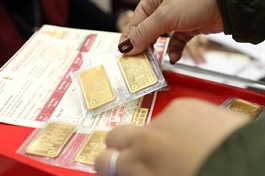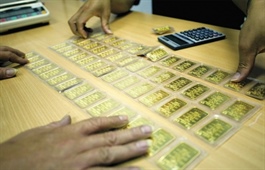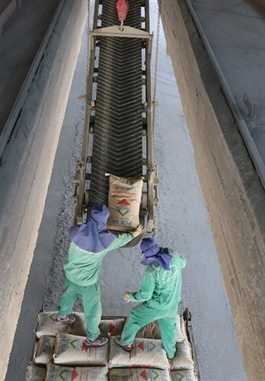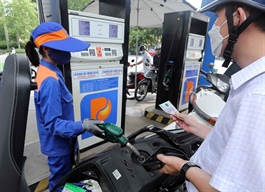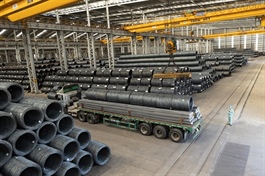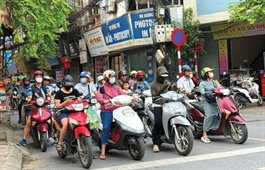E-bike players prepare for transition
E-bike players prepare for transition
Vietnam’s electric motorbike market is entering a period of fierce competition and policy-driven transition, as major players like Honda and Yamaha unveil new models in response to stricter urban emission controls and shifting consumer preferences.
Vietnam’s e-bike segment is thriving. In the first half of 2025, the overall two-wheeler market reached 1.6 million units sold, up 19 per cent on-year. Notably, e-bikes saw robust growth, with VinFast and Yadea posting standout performances. VinFast, a Vingroup subsidiary, has steadily expanded its product range since its 2018 debut, offering options for all customer segments.
With its established battery-swapping infrastructure, after-sales network, and early market entry, has already captured a sizeable share of young, tech-savvy riders. The company currently produces over 120,000 e-motorcycles annually and offers models across all price segments, from the Evo 200 Lite at $1,000 to the high-end Theon at $2,560.
Yamaha, another long-standing player in Vietnam’s two-wheeler space, is not standing still. Its NEO electric model is making headlines with aggressive pricing down from a listed price of around $2,000 to just $1,280 at select dealerships, including the battery. Sporting a compact European design, a smooth rear-wheel hub motor, and smart key functionality, the NEO is geared towards daily commuters and offers a rare dual-battery option, extending range up to 144km.
Honda, meanwhile, is piloting two distinct electric models. The ICON e:, manufactured locally at its Vietnam plant, is priced from roughly $1,000, excluding the battery. It features a compact city design, LED lights, a digital dashboard, USB charging, and IP67 water-resistant standards. Its lithium-ion battery delivers a 71km range on a full charge.
Rather than selling batteries outright, Honda offers a subscription model at $14 a month with unlimited mileage – an approach aimed at lowering upfront costs.
The CUV e:, meanwhile, is not available for retail purchase but offered exclusively through a leasing programme at around $5 a month.
These moves reflect broader strategic shifts at the global level. Honda Motor is banking on hybrid electric vehicles (HEVs) as a bridge in its transition to full electrification. The group plans to launch 13 new HEV models by 2027 and aims to slash hybrid system costs by half compared to 2018 levels.
Honda forecasts that HEVs will account for 2.2 million units of global car sales annually by 2030 – over 60 per cent of total volume – while revising down its all-EV sales target by 30 per cent due to slower-than-expected demand.
In the motorbike segment, Honda delivered a record 20.57 million units globally in fiscal year 2025, holding around 40 per cent market share. It is now selling e-bikes in key Southeast Asian markets, including India, Indonesia, Thailand, the Philippines, and Vietnam, with plans to launch a dedicated factory in India by 2028.
However, despite being present in the market for years, electric motorbikes in Vietnam have yet to win over the majority of consumers. Concerns over price, battery lifespan, and charging infrastructure persist, hindering widespread adoption.
“In the short term (2025–2028), manufacturers face pressing challenges and opportunities,” said Nguyen The Dat, a veteran auto industry analyst. “Interest in electric motorcycles is growing, though adoption is limited by high upfront costs and insufficient charging infrastructure.”
To address environmental pollution, Hanoi will begin restricting petrol-powered motorbikes within the city’s first ring road from July 2026. By 2028, the ban will expand to Ring Road 2, and by 2030 to Ring Road 3. To implement this roadmap, the city is drafting policies to support the scrapping of 450,000 petrol bikes, including proposals for registration fee exemptions and the expansion of EV charging infrastructure.
Ho Chi Minh City is considering similar measures. Local authorities are studying zonal restrictions to prioritise green mobility, including bans on fossil-fuel vehicles in central districts and areas such as Can Gio and Con Dao. A draft plan by the city’s Institute for Development Studies proposes banning new petrol bike registrations on ride-hailing platforms from January 2026, followed by a complete ban by the end of 2029.
At a recent virtual seminar on transitioning from petrol motorbikes for a greener Hanoi, hosted by Hanoi People’s Committee, municipal leaders revealed that several major motorbike producers are already preparing their own support packages from old bike buy-back schemes to discounts on EV purchases and after-sales services.
“We are working closely with industry associations and manufacturers like the Vietnam Association of Motorcycle Manufacturers to develop practical, phased policies that align with the city’s development,” said Dao Viet Long, deputy director of Hanoi Department of Construction. The association’s five key members – Honda, Yamaha, SYM, Piaggio, and Suzuki – have expressed support for Hanoi’s long-term electrification roadmap.
“Many businesses are ready with their own support policies,” Long added. “We continue to listen to citizens and enterprises to design flexible policies that match each phase of the transition.”
- 19:00 01/08/2025



